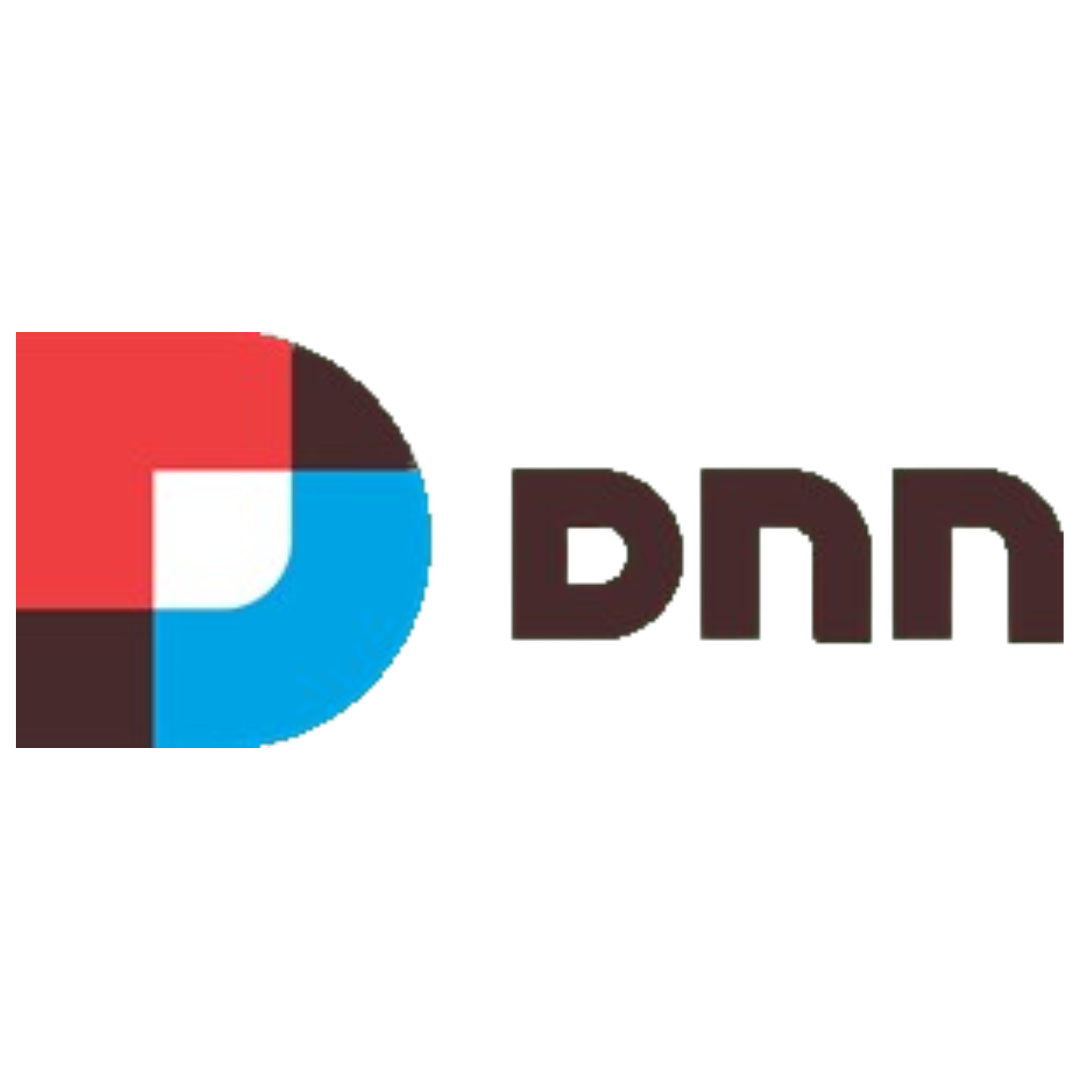
20 Reasons To Outsource Nodejs Developer
In this fast-paced world of technology, staying ahead often means making strategic decisions that can boost efficiency and accelerate growth. When it comes to Node.js development, outsourcing has emerged to be a game-changer for too many businesses. In this blog post, we’ll explore some compelling reasons about how outsourcing Node.js developers works in your favor to become a transformative move for your company.
How does Outsourcing Nodejs Developers help?
Outsourcing Node.js developers brings in cost efficiency, global talent access, and a diverse skill set. It also allows businesses to focus on other core functions that require attention. It also offers flexibility for scaling projects, accelerates development timelines, and mitigates risks through a continuous talent pipeline. This strategic approach empowers companies to navigate through the complexities of Node.js development, ensuring innovation as a competitive advantage.
20 Reasons to Outsource Nodejs Developer
As the digital landscape evolves, businesses increasingly turn to outsourcing Node.js developers for strategic advantages. In this section, we delve into 20 compelling reasons that make outsourcing a transformative decision for companies aiming to enhance efficiency and innovation in Node.js development.
1. Cost Efficiency
Outsourcing Node.js developers brings a strategic cost-saving move that grants access to global talent at a reduced expense. This approach brings negotiated terms for development services and leverages scalable budgets by allowing businesses to adapt costs to project needs. It has optimized resource allocation so that companies can efficiently manage financial resources. It also ensures that the budget aligns with the evolving demands of Node.js development projects. This financial flexibility is particularly advantageous for startups and small businesses who are looking to maximize their development investments.
2. Access to Global Talent
Outsourcing opens gates to a diverse global talent pool that provides projects with a rich mix of skills and innovative solutions. This diversity goes beyond technical expertise, incorporating various cultural perspectives that can contribute to a wide array of user expectations. This global talent pool offers technical proficiency along with unique insights into market trends and user preferences. This ensures that Node.js projects are not just technically sound but also reasonable with the global audience.
3. Focus on Core Functions
Outsourcing allows businesses to refocus on internal resources for core functions by enhancing overall efficiency and innovation. This strategic shift enables internal teams to concentrate on other high-priority tasks, strategic initiatives, and research development. This results in a streamlined workflow that improves productivity and fosters a positive work environment contributing to higher employee satisfaction. This renewed focus on core functions positions the business for long-term growth by ensuring that the internal teams are dedicated to tasks that directly contribute to the company’s merit and competitiveness in the market.
4. Flexibility in Scaling
Outsourcing offers a seamless scaling that is based on project needs by allowing businesses to optimize all the resources efficiently. This adaptability ensures that companies can respond swiftly to all the changing workloads and evolving project scope. You can scale all the major projects or even downsize them during periods of reduced workload, outsourcing gives you all the flexibility to align with specific business needs. The ability to quickly onboard additional developers during peak periods also ensures that project timelines are met without compromising on quality. Scalability also brings in the integration of specialized skills as required without compromising on quality.
5. Accelerated Timelines
Outsourcing accelerates Node.js project timelines by leveraging dedicated teams for a swift response to market demands. This streamlined communication fosters an agile development environment to ensure efficient milestone achievements. A faster development cycle enhances a company’s responsiveness and reputation for timely project delivery. Moreover, it also has a collaborative nature of outsourcing that promotes effective communication to reduce development bottlenecks and contribute to an environment of continuous improvement. This emphasis on efficiency and communication ensures that the Node.js projects are delivered on time without compromising on quality.
6. Risk Mitigation
Outsourcing mitigates talent and shortlists risks and other unexpected departures in-house. External experts ensure continuity by minimizing the impact of challenges and maintaining project stability. It gives access to a talent pool that helps to bridge skill gaps and gives structured contracts to provide safety nets with predefined standards. Global outsourcing significantly reduces dependency on local conditions by buffering against regional economic fluctuations.
7. 24/7 Development
Global outsourcing enables round-the-clock development with teams that collaborate seamlessly across different time zones. Continuous progress maximizes productivity and accelerates Node.js projects efficiently. It leverages time zone differences and establishes a continuous development cycle to ensure consistent progress. This 24/7 model facilitates rapid iterations and enhances creativity in distributed teams.
8. Expertise in Niche Technologies
If you are looking for some specific specialization in niche technologies then outsourcing Node.js developers is the best thing to do. They bring advanced skills and insights to the table that are not readily available in-house. This expertise contributes to develop cutting-edge solutions and positions projects for success. In-depth knowledge of specialized technologies ensures the use of relevant tools. It also gives exposure to diverse projects that broaden the developer’s skill sets by enhancing the ability to unique requirements. Expertise in niche technologies also provides a strategic advantage in delivering high-performing and scalable Node.js applications.
9. Scalable Workforce
Outsourcing brings flexible workforce to scaling based on project demands by optimizing resource allocation. This adaptability ensures a quicker response to changing project requirements by enhancing efficiency in Node.js development. You can easily scale up or downsize by outsourcing to align with certain business needs. You can get quick onboarding during peak periods to ensure that project timelines are met without compromising on quality. Scalability integrates with specialized skills to provide a tailored approach to different project phases.
10. Access to Latest Technologies
External Node.js developers lead with the latest technologies to ensure that the projects benefit from cutting-edge solutions. Access to current tools enhances the quality and innovation of Node.js development, by keeping projects ahead. Proactive engagement with emerging technologies contributes to overall project progress. The usage of the latest technologies ensures that Node.js applications are developed efficiently and securely. You can stay current with technological advancements by providing a competitive edge in the ever-evolving tech landscape.
11. Improved Productivity
Outsourcing routine tasks boosts the internal team's focus on high-priority functions by enhancing overall productivity. It has streamlined workflows and effective resource use to result in improved project outcomes and quicker development goal achievements. Internal teams can have a better concentration on other strategic initiatives when experts are handling their routine development tasks to foster a more agile and competitive organization. It has increased productivity to contribute to a healthier work-life balance to create a positive work environment and enhance employee satisfaction.
12. Cultural Diversity
Engaging in a global talent pool introduces cultural diversity by fostering creativity and diverse perspectives in problem-solving. This enhances the development process, leading to more inclusive and user-centric Node.js applications. Collaborating with developers from diverse cultural backgrounds ensures a comprehensive and well-rounded solution. Exposure to varied perspectives guarantees Node.js applications are designed with a global audience in mind, enhancing market relevance. Cultural diversity promotes a collaborative and inclusive work environment, contributing to better team dynamics and overall project success.
13. Quality Assurance
Outsourcing firms tend to have dedicated quality assurance teams to ensure that Node.js projects meet high functionality and performance standards. This emphasis on quality assurance identifies and rectifies issues from the very beginning of the development process. This results in a robust final product. Dedicated QA teams employ thorough testing methodologies to ensure that Node.js applications remain bug-free and perform seamlessly. It commits quality assurance that contributes to a seamless user experience by reducing post-launch issues. A separate QA team ensures an unbiased evaluation, leading to objective and comprehensive testing.
14. Reduced Time-to-Hire
The hiring and onboarding process is time-consuming, and hence… outsourcing comes to the rescue. This process accelerates the initiation and progression of Node.js projects to enable a quicker response to market demands and project timelines. The saved time can be used somewhere else to contribute to a faster time-to-market for Node.js applications. Outsourcing partners often have skilled pre-vetted developers to streamline onboarding by reducing the time to assemble a capable team. Eliminating lengthy recruitment processes enhances agility in responding to project requirements and market dynamics.
15. Focus on Innovation
When you outsource people for routine tasks, internal teams allocate more time and resources to innovate and stay ahead of industry trends. This innovation focus becomes important for businesses that aim to differentiate themselves and deliver cutting-edge Node.js solutions. Internal teams get free from routine tasks to explore new ideas and technologies to ensure that Node.js applications are built with the latest and the most innovative approach. It gives dedication to research and development for a forward-thinking perspective. When businesses seek to emphasize themselves as industry leaders, they contribute to brand differentiation and long-term success.
16. Cost Transparency
Outsourcing agreements come up with transparent pricing structures to provide clarity and predictability for budgeting Node.js development projects. This transparency of cost ensures that businesses can plan and allocate resources effectively by minimizing the financial uncertainties that are associated with project outsourcing. A transparent pricing structure typically includes clear breakdowns of costs to make it easier for businesses to understand and manage their budget. This transparency also extends to additional costs to ensure that businesses are aware of any potential overruns or additional expenses that are related to the outsourcing agreements. This clear cost visibility contributes to better financial planning and allows businesses to make more informed decisions regarding resource allocation.
17. Global Market Insight
Engaging with internal developers gives you valuable insights into global market trends to ensure that your Node.js applications align well with diverse user expectations. This global market insight is instrumental in tailoring products to meet the preferences and requirements of a wide user base for users across different regions. International developers bring in a global perspective to Node.js development for ensuring that the applications are designed with a broad user base in mind. The exposure to diverse market trends ensures that Node.js applications remain relevant and competitive in a rapidly changing global landscape. Global market insight also provides businesses with a strategic advantage by anticipating and adapting to emerging trends before they become widespread.
18. Reduced Management Overhead
Outsourcing reduces the burden of managing an in-house team allowing you to streamline operations and minimize any administrative complexities. This reduced management overhead frees up internal resources by enabling organizations to focus on other strategic decision-making and core business functions. Outsourcing partners typically handle all the administrative tasks that are related to payroll, benefits, and employee management by reducing the administrative workload of businesses. The streamlined management structure also ensures that businesses can operate with greater efficiency to make strategic decisions without being bogged down by day-to-day operational challenges. It reduces management overhead to contribute to a more agile and responsive organizational structure.
19. Faster Learning Curves
Experienced and outsourced Node.js developers bring a faster learning curve that adapts swiftly to project requirements and delivers results with efficiency. With this quick adaptation to new technologies and project nuances, you ensure a development activity that progresses smoothly to contribute to the project's success as a whole. The developers often come up with diverse project experiences to have exposure of various industries to smoothly navigate learning curves. Node.js applications are developed with a practical understanding of the project’s objectives and user expectations. Faster learning curves also contribute to the overall efficiency of the development process, leading to quicker project iterations and delivery.
20. Focus on Customer Satisfaction
With technical aspects that are handled by external experts, internal teams can prioritize enhanced customer satisfaction. They specifically focus on customer satisfaction because they deliver a positive user experience by fostering brand loyalty and customer retention. It entrusts technical development to skilled outsourcing partners where businesses can concentrate on understanding and meeting the needs of their user base. They emphasize customer satisfaction to go beyond technical functionality to encompass aspects like user interface design, responsiveness, and the overall user experience. This customer-centric approach ensures that Node.js applications are not just technically sound but also resonate and delight users.
Risks to Consider in Outsourcing Nodejs Developer
When considering outsourcing Node.js development, it's crucial to navigate potential risks strategically. From data security concerns to cultural misalignment, a proactive approach to identifying and addressing these risks ensures a smoother collaboration. Here are key risks to be mindful of when outsourcing Node.js developers
1. Security Concerns
Outsourcing involves sharing sensitive project information with external parties and raising concerns about data security. It goes with robust security measures and clear confidentiality agreements where there’s a risk of data breaches or unauthorized access that potentially compromises the integrity of the Node.js project.
2. Mismatched Cultural and Work Ethic Values
Cultural differences can have an immense effect on work projects, values and work ethics that can impact collaboration and project dynamics. There can be issues of misunderstandings or conflicting approaches to problem-solving that may arise, affecting the overall efficiency and success of the Node.js development project. Investing in cultural awareness training and fostering open communication can help bridge these gaps.
3. Transition and Handover Risks
Smooth transitions of project initiation and handover phases are critical for the success of your project. A poorly managed transition can result in delays, misunderstandings, and further disruptions. Establishing clear transition plans by conducting knowledge transfer sessions and ensuring an effective onboarding process to mitigate these risks.
4. Project Management Challenges
Certain coordinating activities, timelines, and priorities between the in-house and outsourced teams can result in challenges in project management. Implementing robust project management tools and establishing clear communication channels by defining roles and responsibilities can address potential coordination issues.
5. Lack of Control
Outsourcing entails relinquishing a degree of control over the development process. With this lack of direct oversight, may pose challenges in ensuring that the project aligns with internal expectations and standards. Establishing clear project milestones, regular progress reports, and effective project management practices can mitigate this risk.
What is the process of hiring Node.js developers from an outsourcing company?
Outsourcing Node.js developers can act as a strategic move for businesses that seek efficient and specialized talent. This process begins with a clear definition of project requirements where you can outline the scope of specifics for your web or mobile application needs. When you reach out to outsourcing companies for quotes, you gain insights into the cost and feasibility of your project. This is a critical step for interviewing developers allowing you to evaluate their skills, experience, and cultural alignment that is specific to your goals. Once you get the right fit, sealing the deal with a comprehensive contract ensures a mutual understanding of project scope, deliverables, payment terms, and intellectual property rights. This is a streamlined process that makes the hiring process easy by empowering businesses to leverage Node.js expertise efficiently by contributing to the success of their development projects.
Benefits of outsourcing Nodejs developer from Exavibes
When you engage with Exavibes for your Node.js developer outsourcing requirements, you enlist a team of dedicated and seasoned professionals. These developers possess in-depth insights into the latest technologies, industry trends, and user expectations. It goes on from a remarkable experience spanning over 7 years, serving 150+ clients and delivering 450+ successful projects, Exavibes stands as a trailblazer in Node.js development. Our cohesive team of developers, designers, and project managers seamlessly collaborate to deliver high-quality, customized solutions by offering substantial benefits to your organization.
FAQs while hiring Node.js developers
Here are answers to some questions about hiring Node.js developers which our clients frequently ask
1. What experience should I look for in a Node.js developer?
Look for developers with a solid foundation, preferably 2+ years of hands-on experience with Node.js.
Assess their expertise in related technologies such as Express.js, npm, and MongoDB for a well-rounded skill set.
2. How do I ensure the Node.js developer is up-to-date with the latest trends?
Inquire about their participation in relevant communities, conferences, or continuous learning programs.
Ask for examples of how they've implemented recent Node.js features in their projects.
3. What questions should I ask during the interview to gauge their Node.js knowledge?
Inquire about event-driven programming and asynchronous concepts.
Discuss their experience with building scalable and efficient server-side applications.
4. What are the key projects a Node.js developer should have worked on?
Look for experience in developing RESTful APIs and real-time applications.
Prior work on projects involving microservices architecture is a valuable indicator.
5. How can I assess a Node.js developer's problem-solving skills?
Present a real-world scenario and ask how they would approach and solve a specific problem.
Include coding exercises or problem-solving challenges during the interview process.
You can also visit related blogs:


































































comments for "An Interview with Exavibes Services"
Leave a Reply